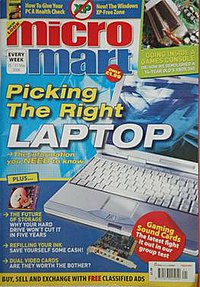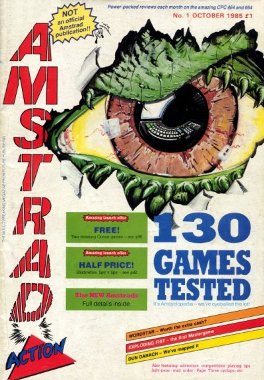
Amstrad Action was a monthly magazine, published in the United Kingdom, which catered to owners of home computers from the Amstrad CPC range and later the GX4000 console.
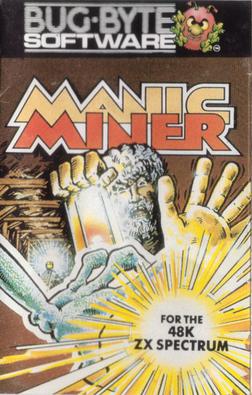
Manic Miner is a platform game written for the ZX Spectrum by Matthew Smith. It was published by Bug-Byte in 1983, then later the same year by Software Projects. The first game in the Miner Willy series, the design was inspired by Miner 2049er (1982) for the Atari 8-bit family. Retro Gamer called Manic Miner one of the most influential platform games of all time, and it has been ported to numerous home computers, video game consoles, and mobile phones.
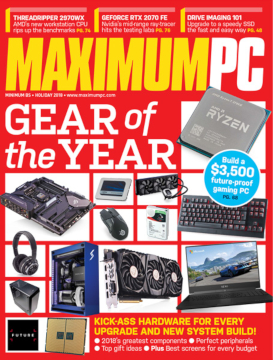
Maximum PC, formerly known as boot, is an American magazine and website published by Future US. It focuses on cutting-edge PC hardware, with an emphasis on product reviews, step-by-step tutorials, and in-depth technical briefs. Component coverage areas include CPUs, motherboards, core-logic chipsets, memory, videocards, mechanical hard drives, solid-state drives, optical drives, cases, component cooling, and anything else to do with recent tech news. Additional hardware coverage is directed at smartphones, tablet computers, cameras and other consumer electronic devices that interface with consumer PCs. Software coverage focuses on games, anti-virus suites, content-editing programs, and other consumer-level applications.
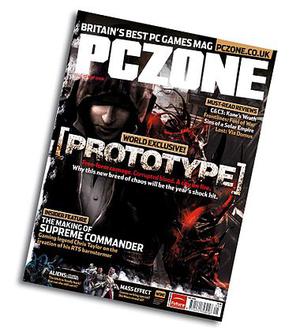
PC Zone, founded in 1993, was the first magazine dedicated to games for IBM-compatible personal computers to be published in the United Kingdom. Earlier PC magazines such as PC Leisure, PC Format and PC Plus had covered games but only as part of a wider remit. The precursor to PC Zone was the award-winning multiformat title Zero.

Crash, stylized as CRASH, is a magazine dedicated to the ZX Spectrum home computer, primarily focused on games. It was published from 1984 to 1991 by Newsfield Publications Ltd until their liquidation, and then until 1992 by Europress. It was relaunched as a quarterly A5 magazine in December 2020 with the backing of the original founders.
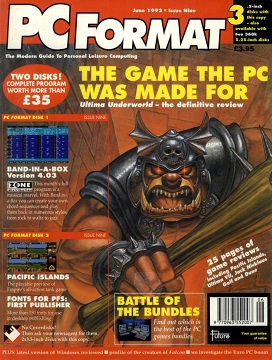
PC Format was a computer magazine published in the United Kingdom by Future plc, and licensed to other publishers in countries around the world. In publication between 1991 and 2015, it was part of Future plc's Format series of magazines that include articles about games, entertainment and how to get the most out of the platform. Despite the occasional mention of alternatives, PC Format takes the term 'PC' to mean a Microsoft Windows-based computer.

Zzap!64 was a computer games magazine covering games on the Commodore International series of computers, especially the Commodore 64 (C64). It was published in the UK by Newsfield Publications Ltd and later by Europress Impact.

Computer Shopper was a magazine published monthly between 1988 and 2020 in the UK by Dennis Publishing Ltd. It contained reviews of home computers, consumer technology and software as well as technology-focused news, analysis and feature articles.
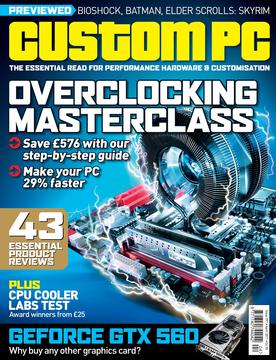
Custom PC was a UK-based computer magazine originally published by Dennis Publishing Ltd and subsequently sold to Raspberry Pi Trading Ltd. It was aimed at PC hardware enthusiasts, covering topics such as modding, overclocking, and PC gaming. The first issue was released in October 2003 and it was published monthly until the final issue, number 235, was released in February 2023.
bit-tech is an online magazine for computer hardware enthusiasts, gamers and case modders, based in the UK. It was founded in 2000, became a fully professional online publication in 2005, and announced its acquisition by Dennis Publishing in October 2008. Dennis Publishing then partnered the site with existing monthly publication Custom PC magazine, making Bit-Tech the online version of the magazine. At this point the two editorial teams were totally integrated. However, due to a restructure in January 2012 the website and magazine had separate editors again, although several of the writers still contributed material to both publications. It is owned by The Media Team.

TechLife is an Australian general computer magazine, published monthly by Future Australia.

Computeractive is a fortnightly computer magazine published by Future plc in the United Kingdom.

Smart Computing was a monthly computing and technology magazine published by Sandhills Publishing Company in Lincoln, Nebraska, USA. First released under the name PC Novice, it was published from 1990 to 2013.
Igromania is a Russian video game website and formerly a magazine.

Following the introduction of the IBM Personal Computer, or IBM PC, many other personal computer architectures became extinct within just a few years. It led to a wave of IBM PC compatible systems being released.

Commodore USA, LLC was a computer company based in Pompano Beach, Florida, with additional facilities in Fort Lauderdale, Florida. Commodore USA, LLC was founded in April 2010. The company's goal was to sell a new line of PCs using the classic Commodore and Amiga name brands of personal computers, having licensed the Commodore brand from Commodore Licensing BV on August 25, 2010 and the Amiga brand from Amiga, Inc. on August 31, 2010.

Personal Computer News (PCN) was a magazine publication which reviewed software and hardware for computers. It was published initially fortnightly, and during the boom period of home computing within the United Kingdom. It was published by VNU Publications and had a female editor, Cyndy Miles, unusual for computer magazines of the time.

World of Commodore is an annual computer expo dedicated to Commodore computers.
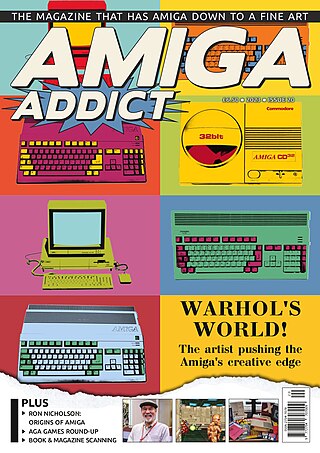
Amiga Addict was the first Amiga magazine to be sold in newsagents in the UK and internationally since Total Amiga magazine ceased in 2007 which has resulted in praise from the wider games press for the magazine's quality and courage, partly due to the challenges the publication faces in keeping the Amiga relevant now that it is an older niche platform.
